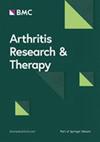Functional work disability from the perspectives of persons with systemic lupus erythematosus: a qualitative thematic analysis
IF 4.9
2区 医学
Q1 Medicine
引用次数: 0
Abstract
Systemic lupus erythematosus (SLE) disease symptoms that can significantly restrict work ability and work participation resulting in reduced mental well-being. This study investigates the significant impact of work participation and disability on the mental wellbeing, health-related quality of life, and disease-related outcomes in individuals with SLE. With the objective of creating an SLE-related functional profile rooted in work disability (WD) prevention, 46 SLE patients were purposively recruited from Canadian medical centres. Through semi-structured interviews guided by a WD prevention framework, factors associated with WD and lived experiences of SLE-related WD were qualitatively explored. Braun and Clarke’s six-stage inductive thematic analysis was used to organize the data. Most participants experienced some form of work disability across their employment history related to their clinical manifestations of SLE, including hospitalizations, physical limitations, fatigue, and neurocognitive symptoms (e.g. brain fog). Thematic analysis revealed three key themes: (a) the influence of illness experience on work, (b) the stigmatization of illness disclosure, and (c) the availability of workplace resources/accommodations. Participants emphasized the desirability of work with reduced physical and mental demands, increased personal control, and workplace flexibility to prevent WD. The study underscores the need for a collaborative, multi-component, and multidisciplinary intervention targeting psychosocial and workplace factors to establish a goal-oriented preventative framework, potentially improving WD outcomes in SLE individuals.系统性红斑狼疮患者的功能性工作障碍:定性专题分析
系统性红斑狼疮(SLE)疾病症状可显著限制工作能力和工作参与,导致心理健康下降。本研究探讨了工作参与和残疾对SLE患者心理健康、健康相关生活质量和疾病相关结局的显著影响。为了建立基于工作残疾(WD)预防的SLE相关功能概况,有目的地从加拿大医疗中心招募了46名SLE患者。在WD预防框架的指导下,通过半结构化访谈,对WD相关因素和sled相关WD的生活经历进行了定性探讨。采用Braun和Clarke的六阶段归纳主题分析来组织数据。大多数参与者在其工作经历中都经历过与SLE临床表现相关的某种形式的工作残疾,包括住院、身体限制、疲劳和神经认知症状(如脑雾)。专题分析揭示了三个关键主题:(a)疾病经历对工作的影响,(b)对疾病披露的污名化,以及(c)工作场所资源/住宿的可用性。参与者强调了减少体力和精神需求,增加个人控制和工作场所灵活性的工作的可取性,以防止WD。该研究强调需要协作、多成分和多学科的干预,针对社会心理和工作场所因素,建立一个目标导向的预防框架,潜在地改善SLE患者的WD结果。
本文章由计算机程序翻译,如有差异,请以英文原文为准。
求助全文
约1分钟内获得全文
求助全文
来源期刊

Arthritis Research & Therapy
RHEUMATOLOGY-
CiteScore
8.60
自引率
2.00%
发文量
261
审稿时长
14 weeks
期刊介绍:
Established in 1999, Arthritis Research and Therapy is an international, open access, peer-reviewed journal, publishing original articles in the area of musculoskeletal research and therapy as well as, reviews, commentaries and reports. A major focus of the journal is on the immunologic processes leading to inflammation, damage and repair as they relate to autoimmune rheumatic and musculoskeletal conditions, and which inform the translation of this knowledge into advances in clinical care. Original basic, translational and clinical research is considered for publication along with results of early and late phase therapeutic trials, especially as they pertain to the underpinning science that informs clinical observations in interventional studies.
 求助内容:
求助内容: 应助结果提醒方式:
应助结果提醒方式:


